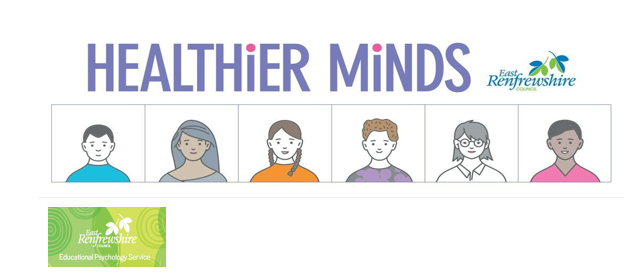Your presence and support in the life of your child will be a positive influence on their mental wellbeing. Children and young people who have this are more connected to others, more self-confident, optimistic about the future and better able to cope with difficulties. It is good to look for ways to connect with them. You are likely to know them and
what motivates them better than anyone. If your child is younger, getting alongside them while they are playing and
following their lead is a way to connect.
If your child is older, sitting playing a computer game with them, watching a movie or taking them shopping may be
a good way to connect. Don’t rush in to talk about what they are worried about. Try and allow things to develop
naturally, and give your child ‘openings’ to talk. Allowing a calm, relaxed silence will help them feel like they have time and space to think and speak.
There are some simple ‘Do’s and Don’ts’ that can help.
Connect and make time for you and your child to do things together regularly. Make plans and stick to them, but throw in some unplanned enjoyment too.
but throw in some unplanned enjoyment too.
Notice their body language and think about what this tells you about how they are feeling.
Think about your own body language. Use eye contact sparingly, smile, touch them gently, give them a hug, and make sure your gestures and movements are slow and relaxed. Let your calm become their calm.
Walk the walk. Encouraging your child to sleep well, eat healthily, exercise, and take time for relaxation will be more effective if the adults in the house are doing some of these things too. The language we use is important and a child will learn how to talk about things from the way adults do. Think about the language you use with each other in the house.
Focussing on what is going well, being non-judgemental and calm can really help.
Remember that how you connect with your child will depend on their likes; some children may want to spend time talking things over, others may prefer doing activity or sport.
Be kind to yourself; it is impossible to be a perfect parent all of the time.
If your child is younger …
 Play! Even if just for short bursts throughout the week, make the time, let them make the decisions (within reason!)
Play! Even if just for short bursts throughout the week, make the time, let them make the decisions (within reason!)
and follow their lead. Use basic language, comment on and describe what your child is doing and ask open ended questions that can’t be answered yes or no, for example ‘what are you going to do next?’
Use language to help your child identify their feelings during experiences. This may involve making links between what they are feeling and what they are doing, for example ‘You are smiling, do you feel happy when I push you on the swing?’
Show them how to recover. If your child is very upset, give them a big cuddle, and sit with them until they are calm. Then you can then talk things through.
If your child is older …
 Listen without feeling you should give advice or a solution. Try to avoid judgement.
Listen without feeling you should give advice or a solution. Try to avoid judgement.
Validate the feelings that your child describes or shows, for example, ‘I can see you are feeling really stressed right now because of all that is happening at school/home. Is that right?’
Comment on what you hear and see and restate it, for example, ‘So you are saying you are feeling a bit fed up at the moment?’
Look and listen out for exceptions, times when your child mentions that things are going better or when they appear to be enjoying an activity.
Encourage your child to notice and focus on these ‘exceptions’ and do more of the things that make them feel better.
Help your child to develop their own coping strategies by building on things they are doing already, for example, ‘You said that you feel better when you talk to your friend face to face and when you take the dog for a walk. Could you arrange to do that together?’
Ask how you can help, for example, ‘Is there anything I can do to take a little bit of the anxiety away?’
Encourage your child to ask for help if needed, for example, ‘Could you speak to your sister about it too? She went through something similar’ or ‘Could you speak to your pupil support teacher or someone else in school to see if they can help you find other ways to make things a little easier right now?’
Pay attention. Turn off the tv, put the phones away, and create a calm, quiet environment when you can.
The “Don’ts”
 Judge.
Judge.
Overreact.
Avoid the issue (this will not help or encourage your child to address a situation).
Talk just about problems (focus on the exceptions too).
Rush to solve the problem (As a parent, this can be hard – but we all cope better when we have been supported to find our own solution to a problem).
Dismiss their concerns and say they’re wrong to feel a certain way (only they truly know how they are feeling; being told they are not feeling a certain and that they are wrong will only make them feel worse).
Be afraid of long silences. Slow down! Don’t rush the conversation or press too much, either for information or for a quick fix.

